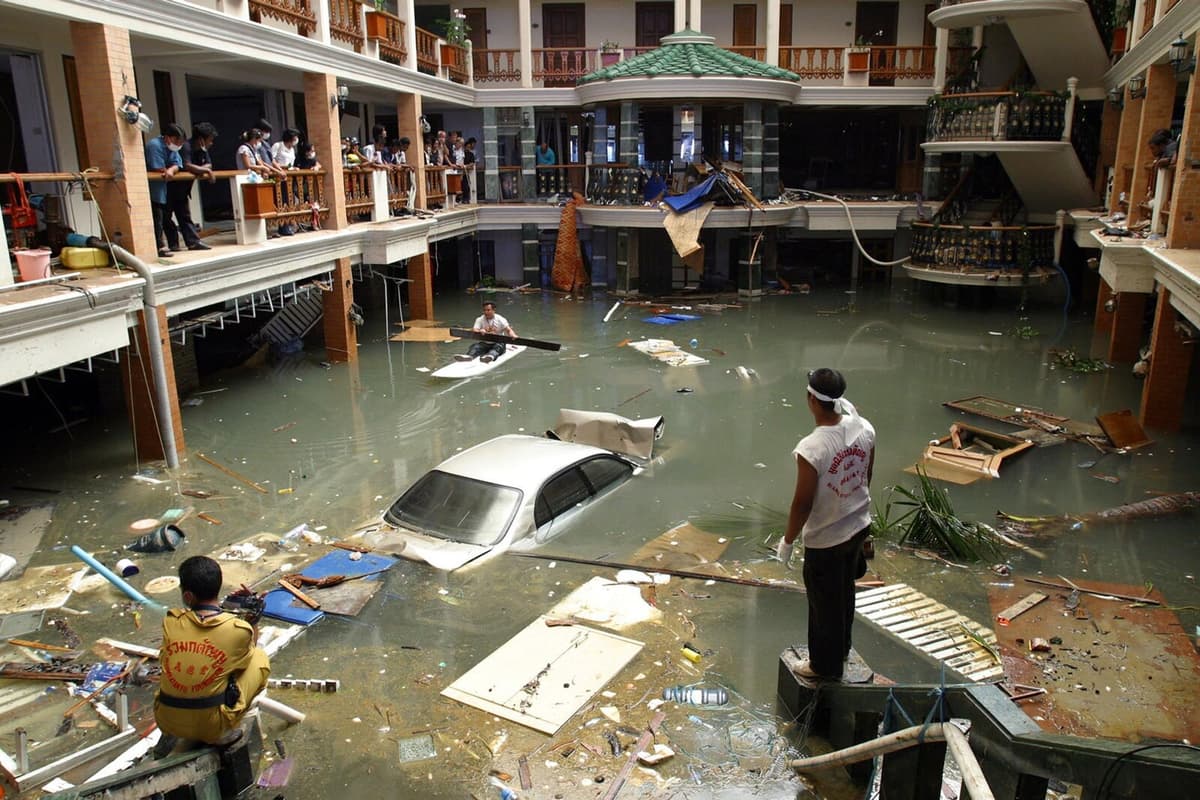At the Center for Disaster Psychiatry at Uppsala University, a total of 11,000 Swedes – 8,000 adults and 3,000 children and young people – who were affected in various ways by the major tsunami disaster in Thailand, among other places, have been followed up.
Over the years, follow-ups on the psychological health of those affected have been conducted through register studies, questionnaires, and interviews. Filip Arnberg, who is the program director of the center, says that it is a special group one has to deal with compared to other disasters.
Most of them were tourists and they came home to an, so to speak, undamaged environment, but with very painful memories and in some cases also permanent losses.
Children Recovered Faster
The latest research results on the affected were published in 2022, and there are still questions in the material that researchers are investigating. Among the things that the follow-up has been able to show, albeit on a very general level, is that it has taken many years for some of those affected to recover, and that generally, it has gone faster for children.
For most children and minors who experienced the tsunami, the psychological problems were relatively transient. Most of them seem to have received good support, says Filip Arnberg.
Some adults also managed to recover relatively well, but overall, it took longer for them.
It's not uncommon for it to have taken five, six years for some of those affected to recover.
Help is Still Available
But for some, it has taken longer than that, and for some, the trauma has not been processed yet.
It seems likely that there are those affected who still feel that their experiences haunt them quite a lot, even though it's been 20 years. We know that for a minority who experience this type of event, it can be very long-lasting, says Arnberg.
He really wants to emphasize that even now, 20 years later, there is help available for those who are still suffering from what they went through.
It can manifest in that one involuntarily thinks about the event in an unpleasant way or that one still avoids thinking about or doing things associated with the event. It can also be about not being able to get rid of a clear vigilance or developing a nervousness that one didn't have before.
It's not too late to get help if one feels that the event still affects one in a negative way or gets in the way of what one wants to do.
Advertisement
Beatrice Nordensson/TT
Facts: The Tsunami Disaster
TT
The natural disaster affected several countries around the Indian Ocean on December 26, 2004. The earthquake that triggered the tsunami occurred at 07.59 local time just north of the island of Simeulue off the coast of Sumatra.
The tsunami waves that formed after the earthquake reached the coasts around the Indian Ocean at different times. Already a quarter of an hour after the earthquake, the tsunami reached northern Sumatra, then Sri Lanka, India, and after two hours, Thailand.
A total of 230,000 people are estimated to have died in the disaster. Citizens from 55 nations died. Of these, approximately 167,000 were from Indonesia, 35,000 from Sri Lanka, 16,000 from India, and 8,000 from Thailand.
During the Christmas holidays in 2004, around 30,000 Swedes are estimated to have been in Thailand. The tsunamis first hit the island of Phuket, then the Phi Phi Islands, and then Khao Lak further north.
More than 2,000 people who were tourists in the affected areas died. Among them were 543 from Sweden, 16 of whom are still missing.
Source: National Encyclopedia






